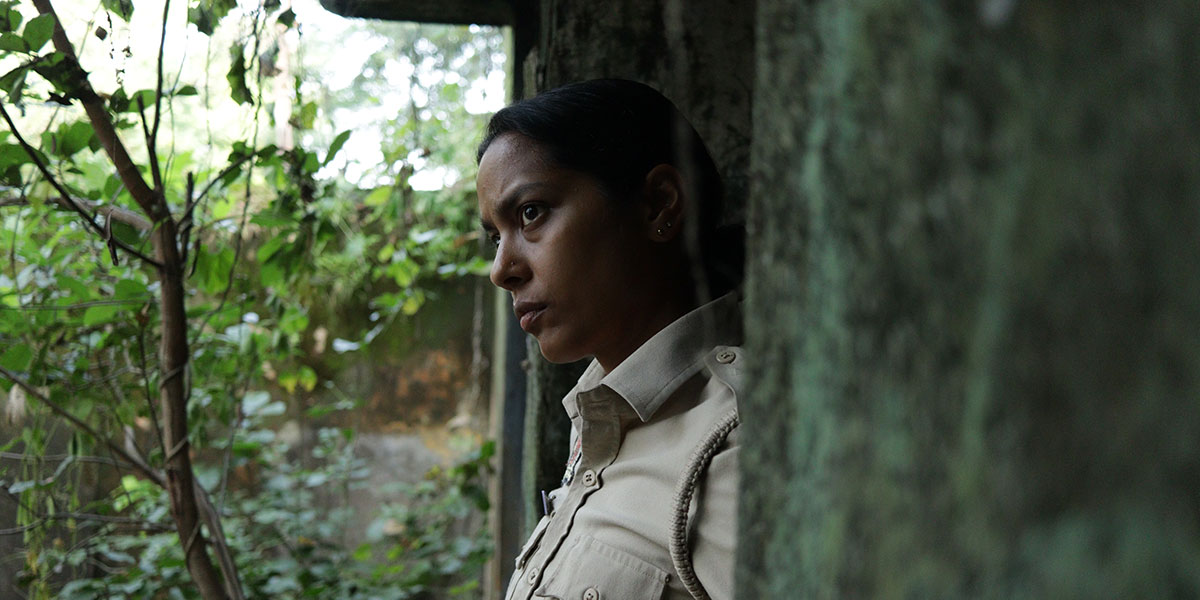By Firdaus Ali in Toronto
Santosh has our attention, and rightly so!
Directed by Sandhya Suri, the film received its Canadian premiere at the TIFF this year and is a searing narrative on India’s socio-political system.
Shown in TIFF’s Centrepiece program, which screens films with compelling storylines on global perspectives, Santosh is set in a fictitious town in rural Northern India, and provides a voyeuristic window to India’s deep-rooted casteism, misogyny, prejudice and religious intolerance.
The film follows Santosh, a young housewife (Shahana Goswami) widowed when her police constable husband is killed on the job. Through a government initiative, she is trained to take his place in an overwhelmingly male police station in rural Northern India on a force rife with compromised ethics.
The arrival of a charismatic female inspector, who takes the title character under her wing, challenges the prevailing patriarchy even as the pair discover how deep it runs.
Set in the hinterlands of Northern India, the film was shot over 45 days in several real locations and around India’s state of Uttar Pradesh with the film crew experiencing monsoons, Diwali and the shenanigans that come with filming in India.

Goswami who was seen in films like Zwigato, Made in Bangladesh, A Suitable Boy, plays the enigmatic Santosh with great restraint. She has the right mix of grit and naïveté, portraying a constable caught in the imbroglio of casteism, corruption and cold-blooded murder.
Suri is a British-Indian writer and director who studied at the U.K.’s National Film and Television School. Her feature documentary I For India premiered in the world competition section of the Sundance Film Festival in 2006 and her short fiction film The Field, won Best International Short Film at the 2018 TIFF Festival.
She directed and wrote the screenplay for the character-driven neo-noir. Working with several NGOs in rural India, she was looking for a way to show the prevailing misogyny and violence against women in a narrative style.
As she researched the Delhi 2012 Nirbhaya gang rape and murder case, Suri was fascinated by a photograph of a crowd of angry female protestors and a line of female police officers forcing them back, particularly one who had an extremely enigmatic expression.
So taken by the female cop, who displayed both being in power and being powerless at the same time, Suri wondered what it would be to like to be this female cop and decided to use her character to tell the story of Santosh.
Produced by Mike Goodridge and James Bowsher of the UK’s Good Chaos, France’s Balthazar de Ganay and Alan McAlex of India’s Suitable Pictures, the film moves on with great intensity, and gets grippingly dark as, against Santosh’s urging, her superior cruelly dismisses a low-caste father’s attempt to file a missing report on his teen daughter.
The discovery of the girl’s body ignites protests in her community. In response to the negative publicity, the department recruits female inspector Sharma (played by Sunita Rajwar, a fantastic theatre actor) to lead the investigation.

Santosh is immediately fascinated by Sharma’s ability to ingratiate herself into the masculine culture of the station while remaining a fierce advocate against gendered violence in public. Sharma, meanwhile, spots Santosh’s keen intelligence and ambition and offers to mentor her.
Santosh seeks professional advancement and respect from her peers while clinging to ethics in a system that prioritizes suspect confessions and convictions by any means.
As Santosh, Goswami projects a practical resilience with each action grounded in careful observation. But it is Rajwar’s turn as the charismatic Inspector Sharma — the moral gradations of her character conveyed in the smallest inflections — that communicates the scope of the compromised system both women struggle against.
Suri blends a journalistic attention to procedural detail — expertly building tension as evidence and characters are revealed — with an empathetic rendering of Santosh’s internal conflicts.
The film leaves you angry at the existing systems wrapped in prejudice, patriarchy, misogyny and casteism.
Santosh is a mirror to our existing world, showing us that the power to change the reflection lies but, with us!













Leave a Reply